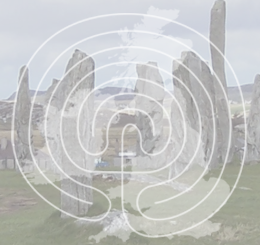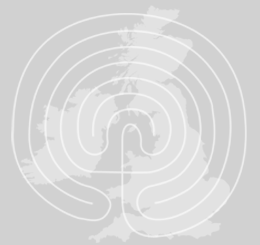Necromancers
I have been reading up on a few definitions. Divination is a method of obtaining unknown knowledge. Necromancy is a form of divination through communicating with the dead. Therefore, does this make everyone who uses Oui Ja boards, all spiritualists and anyone on a vigil who says "Is there anybody there?" a Necromancer?
I have been reading up on a few definitions. Divination is a method of obtaining unknown knowledge. Necromancy is a form of divination through communicating with the dead. Therefore, does this make everyone who uses Oui Ja boards, all spiritualists and anyone on a vigil who says "Is there anybody there?" a Necromancer?




Necromancers
You are absolutely right Ian.
Nekros = the Dead Manteia = the Art of Divination Nekromanteia = The Art of Divination through the Dead . My classical studies are finally paying dividens.
The traditional meaning is very clearly exemplified by the Witch of Endor summoning the soul of the prophet Samuel at King Saul’s bidding. Samuel prophesizes that Saul will be defeated and killed by the Philistines and so it happens.
So technically when we are attending a seance and we ask a spirit insight about the future we are technically using Necromancy.
H.P. Lovecraft, being well read in classic literature, had the "necromancy ring" in The Case of Charles Dexter Ward doing exactly this: summoning the dead back to land of living, giving them a body (so they can fell pain and be tortured, of course) to steal their secrets.
More recently, especially in horror literature, it has taken a more sinister meaning but this doesn’t concern us.
Necromancers
Who sad the art of Necromancy was dead
Necromancers
I think Tolkien was the first one to use the term "Necromancer" in the more widespread meaning used today but I could be wrong.
As with the term "Satanism" the word changed of meanings at least three times during its history.
Necromancers
Tolkein was certainly the first one to use a LOT of terms widely used in our modern fantasy universe- seeing as fantasy has essentially taken over as the "new folklore".
Orcs- a type of large "goblinoid"; the term really first used by him (before I’m sure it was the tradition name for a pig or boar??). He said himself his orcs were basically large hobgoblins.
Elves- Well elves were around before, but he essentially brought them back from the small green chap to the traditional Celtic "faerie". But the segregation into "High Elves, Wood Elves and Dark Elves" features here! As does their high sense of morals, loyalty and nobility.
Dragons- need I say more? Now a very clever and wicked beast, but some can be noble protectors.
The enmity between Elves and Dwarves- now a staple in modern fantasy (probably represents some sort of antagonism between the Celtic folk and the Nordic folk)
A definite line drawn between good and evil. No grey areas which featured regularly in traditional folk stories.
Werewolves and vampires feature as supernatural races, instead of demons in scary stories.
Comedy relief sidekicks (Merry and Pippin) and animal protectors (Huan the great hound) became popular.
And of course; the big, daunting quest, where the fate of the world rests upon one unlikely individual- before it tended to be that the hero went in search of wealth and glory.
These are all now staples of the fantasy genre, and have both good and bad consequences. I always feel that Howard’s Conan stories tend to be more akin to traditional folk tales. Even they contain Necromancers, if I recall correctly. Mostly hailing form the decadent and twisted civilisation of Stygia.
Re: Necromancers
divination first started in china necromancers started in england they can obtain shapes and memories of loved ones
to get what they want they also can sell souls to the devil (lucifer)without the aid of seeing that person or knowing them they just use the deads memories of loved ones also they can make ghosts or ghasts appear it is like that movie the illusionist u are kinda right in syin their the same they just use different methods!!
Re: Necromancers
In ancient Greece a necromancer would be able to contact Hades and thus the underworld by performing and leaving offering in an empty grave. This connection with the earth was believed to make one closer to the dead and the underworld.
Using a oui ja board doesn’t make you a necromancer in my opinion. I mean, people play around with oui ja boards all the time, I doubt that makes them necromancers! It seems a very broad way of communicating with the spirit realm at any rate and maybe not a very effective way considering what can go wrong.
I haven’t looked much into necromancy because I don’t 100% agree with disturbing the dead unless there is good reason. However, I would believe it is a complicated process and instead of simply calling out on anyone, the act of pin pointing a person and bringing them back for questioning would probably be favoured.
Re: Necromancers
i see wat u mean i don’t agree either so i think the best way to contact the dead is by a wicca ritual or a spiritualist
Re: Necromancers
I still think Necromancy is a perfectly good word for contacting the dead, either at a Spiritualist Church or on a Oui Ja Board. The word does not dictate how you how you contact the dead, it is just the act of doing so.
Re: Necromancers
yes but there are many different acts sometimes in life you just have to go with the one you think are right and i do not think necromancy is gd but we all have differing oppinions but i do understand where you are coming from ian
Re: Necromancers
Reduce, Reuse, Reanimate.
Necromancy, reducing our dependence on the Funerary/Industrial Complex.
Summum Nec Metuam Diem Nec Optima
Re: Necromancers
I take it the problem is that the common usage of the word ‘conjours’ up an image that is now associated with evil black magic practices.
Re: Necromancers
Hmm… I think the problem with the word is that it has two meanings although it isn’t stated as such.
‘The Free Online Dictionary
nec·ro·man·cy (nkr-mns)
n.
1. The practice of supposedly communicating with the spirits of the dead in order to predict the future.
2. Black magic; sorcery.
3. Magic qualities.’
So on one hand it is saying just communicating with the dead in order to forfil ones means is necromancy but then again it is saying also sorcery is involved. So I guess both things are necromancy, although the first doesn’t need to be involved with the second. So if you were to go on the Oui Ja Board in order to predict the future, then yes, that may be Necromancy.
Re: Necromancers
but you don’t know whether or not the spirit that is giving the answers on a qui ja board are good or not you could have a spirit that might be able to drive you mad or even worse kill you
Re: Necromancers
Tolkein was certainly the first one to use a LOT of terms widely used in our modern fantasy universe- seeing as fantasy has essentially taken over as the new folklore
Orcs- a type of large goblinoid the term really first used by him (before I’m sure it was the tradition name for a pig or boar??). He said himself his orcs were basically large hobgoblins
YES I SEE WHERE U ARE COMING FROM BUT HE WAS NOT THE FIRST OR SHOULD I SAY NOT ENTIRELY BECAUSE CENTURIES AGO THE SAXONS TALKED ABOUT THE ORCS THEY JUST DIDN’T USE THE SAME NAME
Re: Necromancers
Well, that is a danger with Oui Ja but if the spirit was once a living person then it could be classed as necromancy but that is where the debate comes in. Could Oui Ja not simply be communication with spirits who are simply spirits?
Re: Necromancers
i see wat u mean i think we should just leave the subject to rest because really none of us really know!!!!!
Re: Necromancers
HP Lovecraft said it best ‘do not summon that which ye cannot put downe."
Class Dismissed.
Summum Nec Metuam Diem Nec Optima
Re: Necromancers
In the general occultist view, necromancy is not quite spiritualism and ouija, although there are obviously links.
It is specifically using magical, usually ritual, practices to contact and communicate with shades of people who were once in the flesh. Usually for divinatory ends. The involvement of the person’s body in ritual is common, or their bones or possessions at least, but admittedly not always.
There is a separate art of nigromancy, which is summoning/dealing with black spirits from under the Earth. Some people confuse the two.
Re: Necromancers
[quote=Ecardina]
In ancient Greece a necromancer would be able to contact Hades and thus the underworld by performing and leaving offering in an empty grave. This connection with the earth was believed to make one closer to the dead and the underworld. Using a oui ja board doesn’t make you a necromancer in my opinion. I mean, people play around with oui ja boards all the time, I doubt that makes them necromancers! It seems a very broad way of communicating with the spirit realm at any rate and maybe not a very effective way considering what can go wrong. I haven’t looked much into necromancy because I don’t 100% agree with disturbing the dead unless there is good reason. However, I would believe it is a complicated process and instead of simply calling out on anyone, the act of pin pointing a person and bringing them back for questioning would probably be favoured.[/quote]
I would have to agree with you on the ouija board bit. A Ouija Board doesn’t pin point a particular persons spirit, it just makes a doorway for whatever is there and wishes to use it. And if you believe in spirits, that doesn’t have to be a dead human. I guess it’s down to whether you believe that there are such things as Demons, entities or creatures that are not human out there, as to what or whom it is possible to contact.
BB
Sian
Re: Necromancers
Should mediums be considered as necromancers as they contact spirits?
Re: Necromancers
I’d say no. There is a difference between going to lengths to contact the dead and having the natural ability to do so.
Re: Necromancers
Wicca and necromancy? Seems an unsual combination. Ian you have a good point but hmm… I just think there should be another word for it. I mean, traditionally you are meant to summon a spirit using magic (whatever you wish that to entail) and I don’t know if a oui ja board would count.